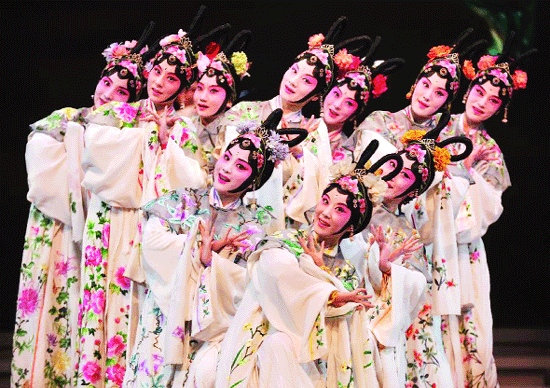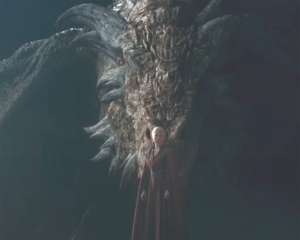After the popularity of European operas, Chinese operas are set to make a breakthrough in the city's cultural scene. Danseuse Swati Bhise, who is bringing The Peony Pavilion here, tells Divya Kaushik about the distinct features of the presentation
We just took to operas like a duck takes to water. Years ago, veterans in the industry were quick to take note of the growing fondness for operas among Delhiites. Groups like The Neemrana Music Foundation (TNMF) came up with many operas. They also conducted workshops and choir classes. There have been frequent performances of Carmen, The Pearl Fishers and If I Were King. In the last few years, many sopranos and tenors visited the city to perform. Popularity of operas reached another level with corporate backing. In 2010, Big Cinemas organised a festival of opera films in Noida wherein there were digital presentations of live operas for three days. Keeping this kind of popularity for operas in mind, it is a surprise that Chinese operas were never able to make a breakthrough on Indian soil. But now it seems is the time when Chinese operas are all set to enthrall the cultural aficionados in the city. Bharatanatyam dancer and choreographer Swati Bhise says, “I was absolutely amazed to learn that no Chinese opera had ever been brought to India despite the fact that we are neighbours. But I think the timing is right now. We are witnessing a new era of cross-cultural interaction.” The artistic director of Bravia Sadir Theatre Festival will soon bring to India the popular Chinese opera The Peony Pavilion by China Northern Kunqu Opera Theatre. “The idea is to educate people and show them that Chinese opera is of a very high calibre in terms of artistry and musicality. I like bringing in unique plays and performances that have never been seen before in a country. The Peony Pavilion or Mudan Ting, in Mandarin, will be a top-notch premiere: the artists are outstanding and the production itself is as close to perfect as one can get it. It will be a highly educative and entertaining concert,” informs Swati.
The Peony Pavilion is the popular play of the Ming dynasty and has been mostly performed as a Kunqu since 1598. Kunqu is one of the oldest extand forms of Chinese opera. It evolved from the Kunshan melody, and dominated Chinese theatre from the 16 to the 18th centuries. It is listed as one of the masterpieces of the oral and intangible heritage of humanity by UNESCO since 200. “Kunqu opera is the most refined of all Chinese opera. It is also one of the oldest forms of Chinese opera and is known as the ‘mother’ of a hundred opera forms. Kunqu, during its heyday, dominated the cultural landscape of China for 200 years. It was viewed by the emperors of China, and the elite and educated society in much the same way as Shakespeare was in london during the 16th century. The theme and stories of Kunqu opera are simple yet visual and poetic. There is a wonderful quote in Sanskrit from the Natyashastra, which says the audience required to view and sustain these glorious traditions must be like ‘Vidvat Bhramara Sanyuktaha’ — intelligent to suck the honey like the bees do from the flowers (pushpa),” says Swati.
The Peony Pavilion in its unabridged version is 19 hours long. The performance tradition has focused on the love story between Du liniang and liu Mengmei but its original text also contains subplots pertaining to the falling Song Dynasty’s defense against the aggression of the Jin Dynasty. Over the years, the opera has changed form to suit to the contemporary times. Swati says, “When I saw it at lincoln Center in New York City, it had not been performed in 200 years and it was a much shorter version. It had to adapt to a new century, a new audience and a new world. I loved the purity of expression. I so enjoyed the mastery the artists displayed of the music, the words and the emotion that was palpable.”
Being a Bharatanatyam dancer, Swati looks forward to collaborate with Chinese artistes to come up with a dance-drama with elements borrowed from the Chinese opera tradition. “Dance has no cultural boundaries. So when we meet other artists from different cultures, the language of cultural boundaries blur and we immediately speak the common language and begin to perform, each in our own medium yet with the ability to appreciate each other’s art with respect and admiration. I would surely think about choreographing something special in the future,” she says.
The danseuse hopes that The Peony Pavilion is well-received here, so that she can look forward to continue bringing more from the bouquet of Chinese opera. “Right now, I am completely focussed on The Peony Pavilion and so eager to share the same excitement I felt when I saw it in New York at lincoln Centre in 1999. I hope it will mark the beginning of some trend,” she ends.


























